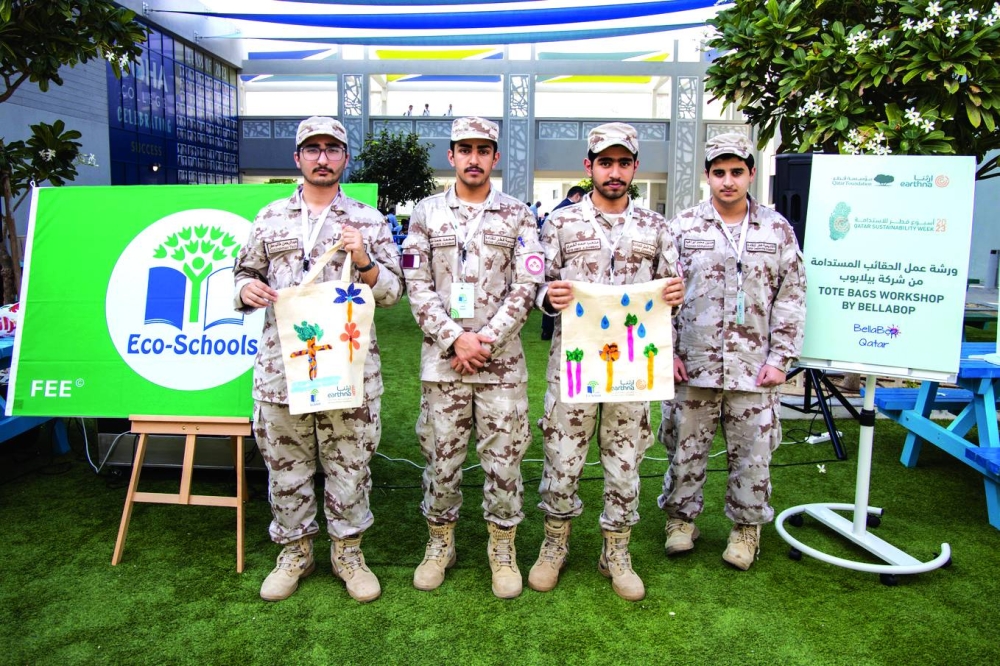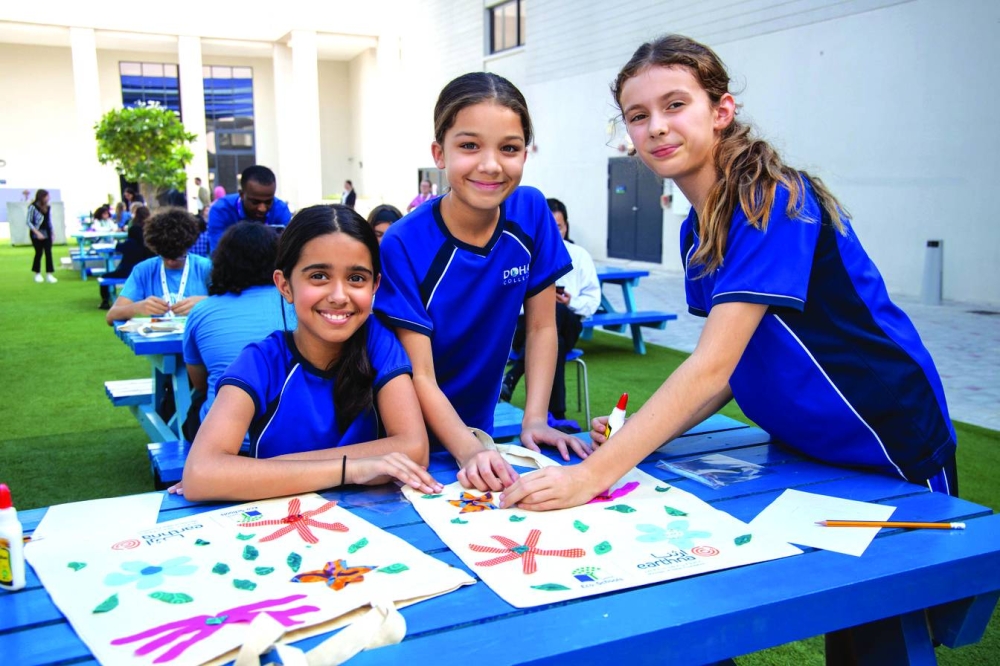Qatar Foundation (QF)’s Earthna Centre for a Sustainable Future, the national operator for the Eco-Schools programme, is empowering the youth of the country through environmental education.
The legacy of Eco-Schools spans three decades, and since its inception in Qatar in 2018, this international initiative has been dedicated to empowering students to spearhead sustainable change within their communities.
The programme plays a pivotal role in cultivating environmental awareness among Qatari youth, with its most recent milestone being successfully engaging with 20 public schools in Qatar.
“In the academic year 2023-2024, we worked with the Ministry of Education and Higher Education and welcomed onboard 20 public schools and trained 67 teachers,” said Earthna technical lead Ruba Hinnawi. “This milestone reflects the ministry’s eagerness to integrate education for sustainability in the educational system in Qatar to equip students with environmental knowledge and hands on activities to lead positive climate action for the sustainability of our communities.”
According to Hinnawi, the Eco-Schools programme is making a key contribution to the future of environmental sustainability in Qatar.
“Through student-centred events such as the Eco-Schools Congress, a biennial congregation where all registered schools and Green-Flag awarded schools network, Earthna offers the youth a platform to showcase their achievements as stewards of the environment to inspire others to follow suit,” she said.
The Eco-Schools Congress of 2023 was marked by a thematic focus on marine and coastal ecosystems to coincide with the recent Earthna educational publication titled Qatar Unique Marine Ecosystem.
“Every congress we try to offer students an opportunity to leave a legacy, during the congress this year, students designed reusable bags made from leftover fabric to replace plastic bags to protect our environment from plastic pollution and to increase biodiversity in Qatar,” Hinnawi said.
In a shift from the traditional education model to a more hands-on learning model, students took on the role of eco-entrepreneurs and created the bags from wasted fabric.
These eco-conscious creations, which are serving as a vehicle for community engagement and environmental advocacy, are now being sold at the QF’s Education City Gift Shop branches.
Revenue from sales is donated to a tree planting activity in the Education City under the QF Park and Plant initiative.

Boys who took the role of
eco-entrepreneurs and created bags from wasted fabric.

Right: Girls taking part in one of the activities of the Eco-School programme.
